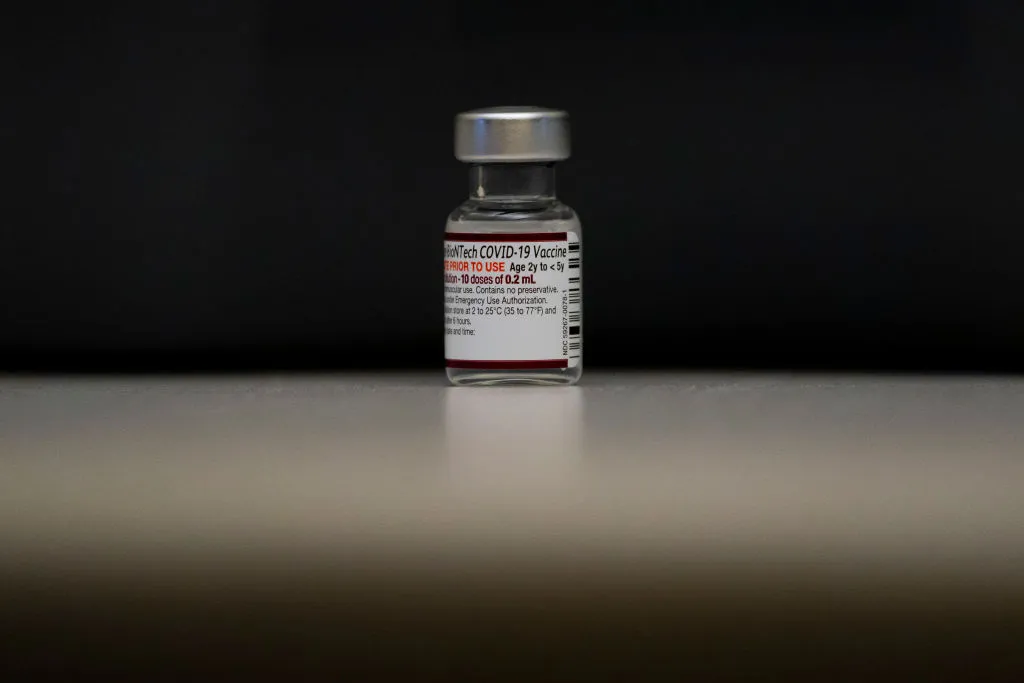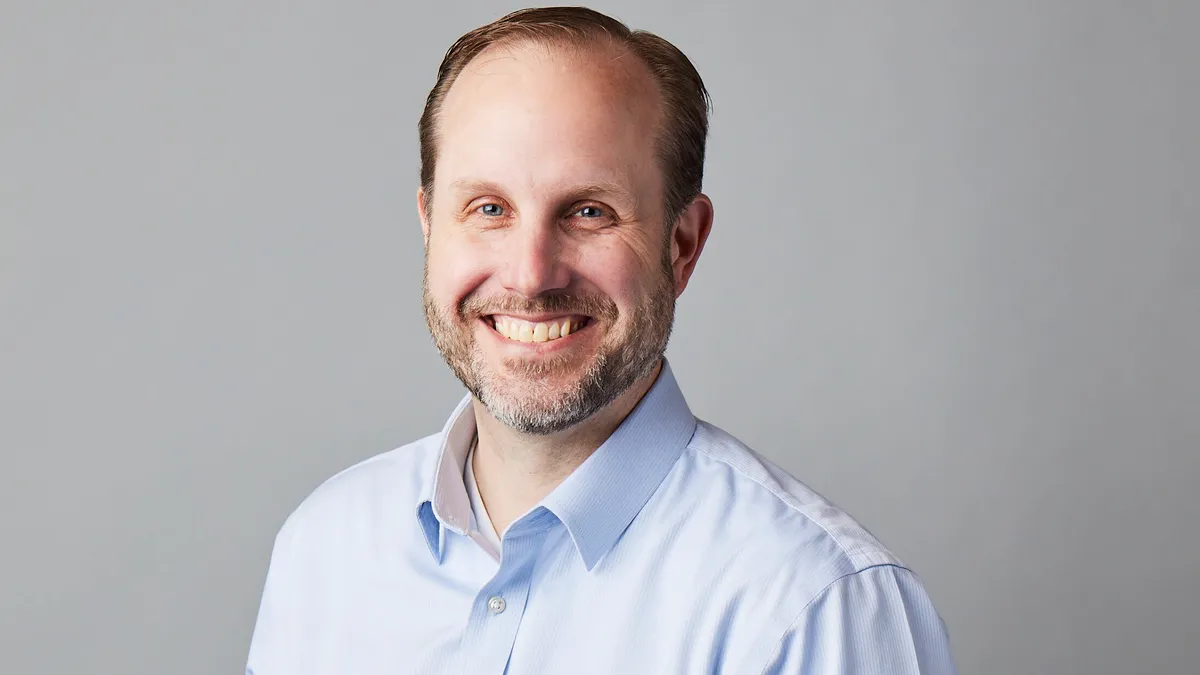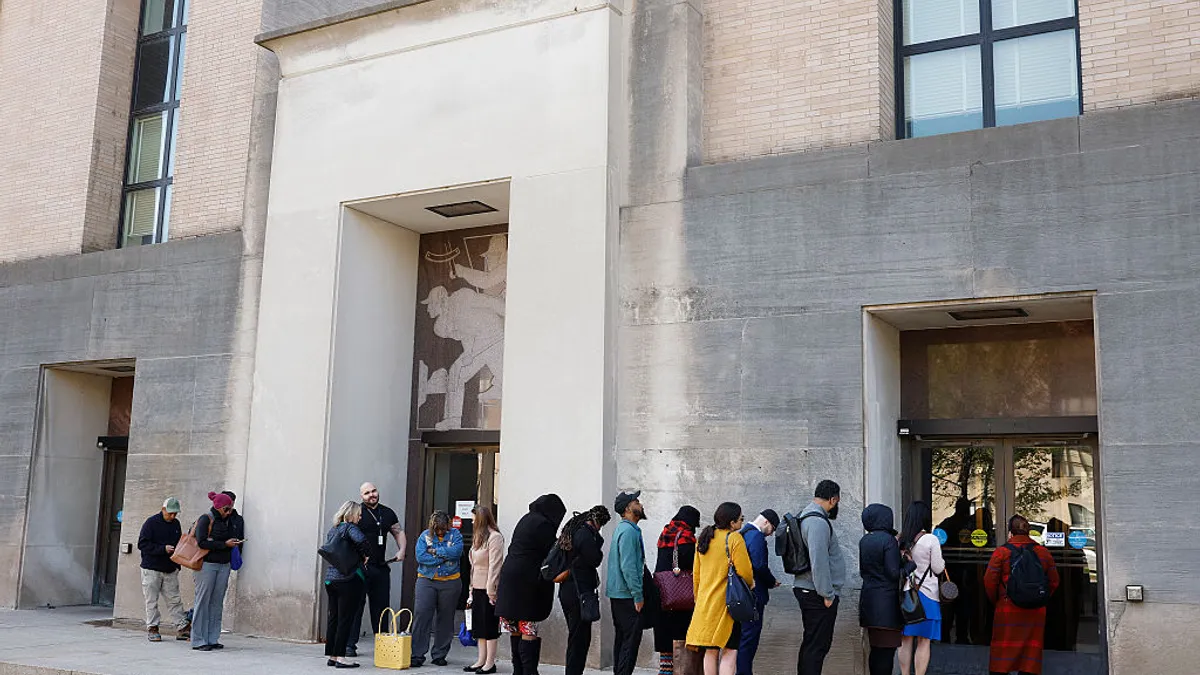When the dust of the pandemic drug blitz settled, vaccines were heralded as the triumphant heroes — while monoclonal antibodies (mAbs) that were also once on the front line faded away.
Last December, the FDA pulled its EUA for Eli Lilly and Co.’s bebtelovimab, which the agency noted was no longer effective against two omicron subvariants. The same fate fell upon AstraZeneca’s Evushelf in January. Until then, the therapies had been the last antibodies standing after other mAbs from companies including GSK and Regeneron were taken out of circulation in the previous years when omicron became the dominant strain and the treatments lost their luster.
But the quest to develop a mAb that can withstand COVID-19’s mutations isn’t over — and Invivyd is aiming to deliver an antibody for those who are immunocompromised or unable to receive a vaccine and have no treatment options at all.
“COVID remains the third leading cause of death and still a significant disease burden,” Invivyd’s CEO, David Hering, said. “mAbs are not a substitute for vaccines … but there are 8 million people in the U.S. who are immunocompromised. They’re cancer patients, have had organ transplants or are contraindicated for vaccines. We talk to advocates all the time who are not comfortable going out without a mask or without social distancing and they are desperate for these types of products.”
In late March, Invivyd, formerly called Adagio Therapeutics, dosed the first patient in a phase 1 trial of its new mAb candidate dubbed VYD222, and the company hopes to have preliminary data by Q2. If the candidate ultimately makes it through the clinic and onto the FDA’s doorstep, it’ll be a notable success for a startup that’s been on a whirlwind quest to edge its way into the COVID-19 antibody space.
A COVID roller coaster
Launched in 2020 to develop COVID-related treatments, Adagio was a rising pandemic biotech star. In 2021, the company pulled in $336 million in a series C and then another $309 million after going public. Its lead candidate, adintrevimab, looked promising and survived through phase 2/3 trials. But ultimately, it was sidelined after it came up short against emerging variants.
“There are no other (mAbs) on the market and we see the need to move quickly.”

Dave Hering
CEO, Invivyd
“The mood inside the company was disappointment,” said Hering. “And for most biotechs, if you flip those cards and they don’t look good, you can’t always keep going. But we knew the products were safe and we knew the mechanism of action looked good.”
Then, in early 2022, its CEO, Tillman Genrgross, suddenly stepped down and Hering moved from the company’s chief operating officer role into Gerngross’ top spot. By fall 2022, Adagio announced it was advancing a reengineered version of adintrevimab called VYD222, and with this new hopeful in the works, the company rebranded as Invivyd.
Despite its setbacks, Invivyd now thinks it’s cracked the code to developing COVID-19 mAbs that go the distance.
Next-gen antibodies
Hering’s experience in fighting infectious disease threats runs deep. While at Novartis, Hering held several roles, including as the leader of the Medical Counter Measures group, which spearheaded the company’s efforts against H1N1. And during his six-year stint at Pfizer, Hering was instrumental in the company’s preparation and launch of its COVID-19 vaccine, helping to score initial contracts with the U.S. government and partnerships with Gavi and the Vaccine Alliance.

Now, with a cash runway that currently extends into the second half of 2024, Hering is also leveraging the experience the company gained with its first compound to advance VYD222 through the clinic.
“We showed that you can go from IND to pivotal data in a short amount of time,” he said.
To help speed the drug’s progress, Hering said Invivyd is negotiating with the FDA about using surrogate biomarkers so that their studies don’t have to show an “event-driven endpoint.”
The company also has a new approach to fighting variants.
“When antibodies stick to viral targets, the virus doesn’t enter human cells and cause disease. But the virus made minor mutations that hid or altered these connection points,” he explained. “VYD222 was re-engineered from adintrevimab by shifting a few amino acids to restore the binding lost with omicron, allowing VYD222 to bind and block viral entry. We are the only company that currently does engineering of COVID antibodies.”
Yet, Hering admits that future mutations could create new challenges for antibodies on the market, and the goal now is to get ahead and stay ahead of variants. The company has other antibodies ready in its pipeline and in the long run, envisions getting a platform approved that could quickly produce new therapies.
“It would be like seasonal flu vaccines, which are updated every year for the new strain but come from the same product platform,” he explained.
With the industry shifting toward an endemic approach to treating COVID-19, Hering sees long-term potential in the market, and pointed out that the antibody treatments sold by Lilly and AstraZeneca had a “run rate of about $2 billion each” before they got pulled from the market.
If Invivyd can ultimately outsmart the virus, it could have the market all to itself. Although many academic institutions are still researching antibody therapies to treat COVID-19, pharma companies are continuing to abandon the space. Last June, Celltrion dropped its efforts to develop an inhaled antibody therapy, and in February, GSK walked away from an antibody collaboration with Vir Biotechnology, leaving it to advance its antibody candidates on its own.
“There are no other products on the market and we see the need to move quickly,” Hering said.




















